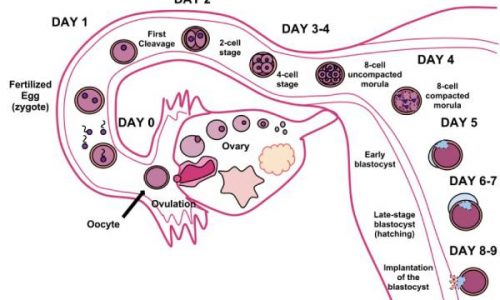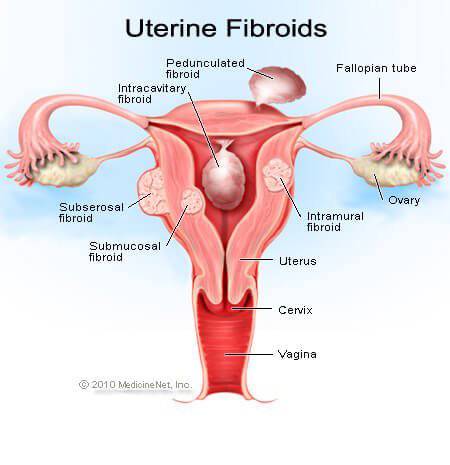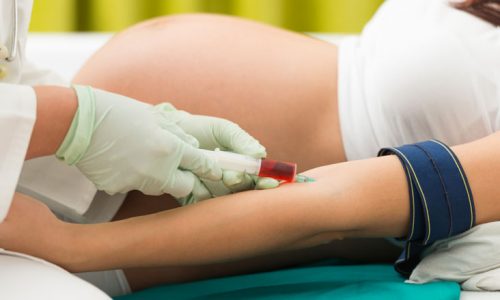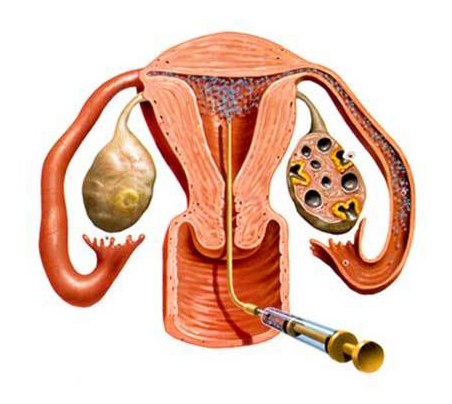One of the greatest wonders of nature is a reproduction. One of life’s greatest gifts to a couple is a child of their own. As such, if a couple is childless it is something that makes them despair & can be a frustrating experience. Infertility means inability to conceive (Attain Pregnancy), despite of regular unprotected sexual intercourse for more than 1 year. Women who can get pregnant but are unable to continue pregnancy may also be infertile.
Steps of Pregnancy:
- Ovulation: A women must release an egg from one of her ovaries. The egg must go through a Fallopian tube towards the uterus.
- Fertilization: A male sperm must unite with the egg in the tube.
- Implantation: The fertilized egg must get attached to the inside of the uterus. Any problem in any of these steps results in infertility. Females account for 1/3rd of infertility cases while males account for the same proportion. Rest of 1/3rd cases the causes remain unexplained.
Causes Of Infertility In Females
- P.C.O.D [Poly-cystic Ovarian Disease]
- Anovulatory cycles.
- Fallopian Tube Block (Tubal Block).
- Uterine Fibroid
- Positive TORCH test.
- Endometriosis
- Bad Obstetric history- Recurrent Abortions
- Stress Factor- Depression or poor self-esteem.
1. P.C.O.D. Polycystic Ovarian Disease or syndrome symptoms :
The symptoms of P.C.O.D. vary widely from women to women. The Symptoms according to severity.
- Irregular or Completely absent Menses.
- Scanty Menses.
- Hirsutism– Excessive facial or body hairs due to high levels of male
- hormone i.e. testosterone.
- Obesity– Due to obesity chances of high B.P. increases which are risk factors for Coronary Heart Disease.
- Acne, Pimples.
- Dysfunctional uterine Bleeding.
- Alopecia- Male pattern hair loss.
- Skin Tags- Raisin like growths on the skin.
- Exhaustion or lack of mental alertness.
- Decreased sex life.
Different women have different symptoms with different levels of Severity.


2. Anovulatory Cycles:
40% of total female infertility are caused by ovarian problems. In case of anovulatory cycles menstrual cycle is irregular but they are an-ovulatory, because of hormonal imbalance. Low levels of hormones i.e. Follicular stimulating hormones & Oestrogen are responsible for the growth and maturation of ovum is the cause of an anovulatory cycle which leads to infertility.
P.C.O.D. is a chronic stage of an-ovulatory cycle.
3. Fallopian Tube Block (Tubal Block):
40% of total female infertility are caused by ovarian problems. In case of anovulatory cycles menstrual cycle is irregular but they are an-ovulatory, because of hormonal imbalance. Low levels of hormones i.e. Follicular stimulating hormones & Oestrogen are responsible for the growth and maturation of ovum is the cause of an anovulatory cycle which leads to infertility.
P.C.O.D. is a chronic stage of an-ovulatory cycle.

Causes of Tubal Blockage :
P.I.D. — Most cases of tubal blockage is caused by Pelvic Inflammatory Disease (P.I.D.).
- PID is an inflammatory condition of the fallopian tubes called salpingitis & may also involve the ovaries called Oophoritis & pelvic peritoneum (Peritonitis)
- Current or history of an STD infection- Gonorrhea etc.
- History of uterine infection caused by an abortion or miscarriage.
- History of Ruptured Appendix or Pelvic Surgery.
- Previous Ectopic pregnancy.
- Prior surgery involving the fallopian tubes.
- Endometriosis- due to pelvic adhesions.
- History of abdominal surgery.
- Recurrent infections like UTI or Tuberculosis.

4. Uterine Fibroids:
Uterine fibroid are benign tumors that originate in the uterus. They are composed of the same smooth muscle fibers as the uterine wall. i.e. myometrium.
Symptoms:
- Most women with uterine fibroid have no symptoms.
- Abnormal uterine bleeding, heavy bleeding, painful menses, prolonged menses, spotting between menses.
- Women with excessive bleeding due to fibroid may develop iron deficiency anemia. Pelvic Pain.
- Pressure on the bladder with frequent or even obstructed urination.
- Pressure on the rectum with pain during defecation.Usually size and location of uterine fibroid matters for infertility. Large size of uterine fibroid obstructs growth of fetus leading to abortion.
5. Torch Complex :
These are a group of Viral, bacterial & protozoan infections that are passed from pregnant women to her foetus via chronic villi of placenta.
To-Toxoplasmosis R-Rubella C-Cytomegalovirus H-Herpes Simplex Virus.
These infections can leads to habitual abortions & severe fetal anomalies. The prevalence of TORCH positivist in cases of infertility is significant & is a major cause of infertility.


6. Endometriosis:
The cells from the lining of uterus grow in other areas of the body. This can lead to pain, irregular bleeding & infertility.
Symptoms:
- Painful menses..
- Cramps in menstruation.
- Pain during or following sexual intercourse.
- Pain with bowel movements.
- Low back pain during menses.
- Endometriosis also leads to anatomical distortion & adhesions.
7. Stress Factor:
‘Stress’ as a sole cause account for about 70% of infertility cases. In today’s life, physiological as well as psychological disturbances are very common, this is because the females are subjected to undue stress & strain due to their social & familial responsibilities.
Symptoms:
- Negative cognitions.
- Constant worrying
- Anxious thoughts (Anxiety).
- Irritability.
- Depression & mood fluctuations.
- Loss of sex drive or libido.
- Insomnia or sleeplessness.
- Nervousness.
Chronic stress promotes hormonal & metabolic changes in females that contributes to various health problems like P.C.O.D or Infertility.

Causes of Infertility In Males
Infertility in males is usually caused by:
- Varicocele : This happens when the veins on the testicles are too large & tortuous causing increased thermal effect on the testicles. This effects the count & motility of the sperm.
- Decreased Motility :This may be caused by the abnormal shape of the sperm. Sometimes injuries or other damage to the reproductive system, effects the sperm motility.
- Heavy Alcohol Use.
- Erectile Dysfunction.
- Smoking, Tobacco chewing.
- Drugs.
- Health problems such as Mumps, kidney Diseases, hormonal imbalance.
- Radiation treatment or Chemotherapy for Cancer.
- Environmental toxins including pesticides & lead.
Management of Infertility :
Treatment of infertility depends upon the cause of Infertility. Ayurvedic ‘Panchakarma’ treatment gives definite answer to the increasing question of infertility in the new era. Panchakarma therapy provides strength to the reproductive organs like Uterus, Ovaries, Fallopian tubes, Vagina in females & Testis in the males. Panchakarma therapy also maintains the hormonal balance.
“The most potential ‘Panchakarma’ treatment in Infertility is Uttarbasti”.
Uttarbasti :
This is a treatment modality employed in case of infertile females which resembles IUI. In this procedure the women is injected with specially prepared Ayurvedic sterile Oil or Ghrut transvaginally. In case of female infertility the procedure is done before the period of ovulation i.e. 5, 6, 7th day of menses, in each cycle, for 3 to 6 consecutive cycles. In this procedure a sterile Ayurvedic oil or Ghrut is injected into the uterine cavity through the vagina under all aseptic precautions. No any type of anesthesia is required for this procedure. This is completely painless treatment.
Indications of Uttarbasti:
- An-Ovulatory Cycles.
- P.C.O.D or P.C.O.S.
- Fallopian Tubal Block.
- Irregular Menses.
- Uterine Fibroids.
- Endometriosis.
- Cervical Polyp.

Benefits of Uttarbasti :
Uttarbasti maintains pH of Vagina [i.e. path of sperm] and uterine cavity which promotes rapid progress of sperm into uterus. It stimulates the ovary to increase quality of Ovum. The Uterus is lined by a special type of tissue known as endometrium. The procedure of Uttarbasti also nourishes the endometrium which helps for implantation of fertilized ovum.
Uttarbasti in Male’s :
In case of male Infertility sterile medicine is passed through urinary tract. It stimulates the prostate & Epidydimis. It also stimulates the process of spermatogenesis &formation of healthy spermatozoa.
Indication :
- Male Infertility ‐ Oligospermia, – Asthenospermia.
- Prostate Enlargement.
- Cystitis.
- Neurogenic Bladder.
- Urethral Stricture.
- Incontinence of Urine.
